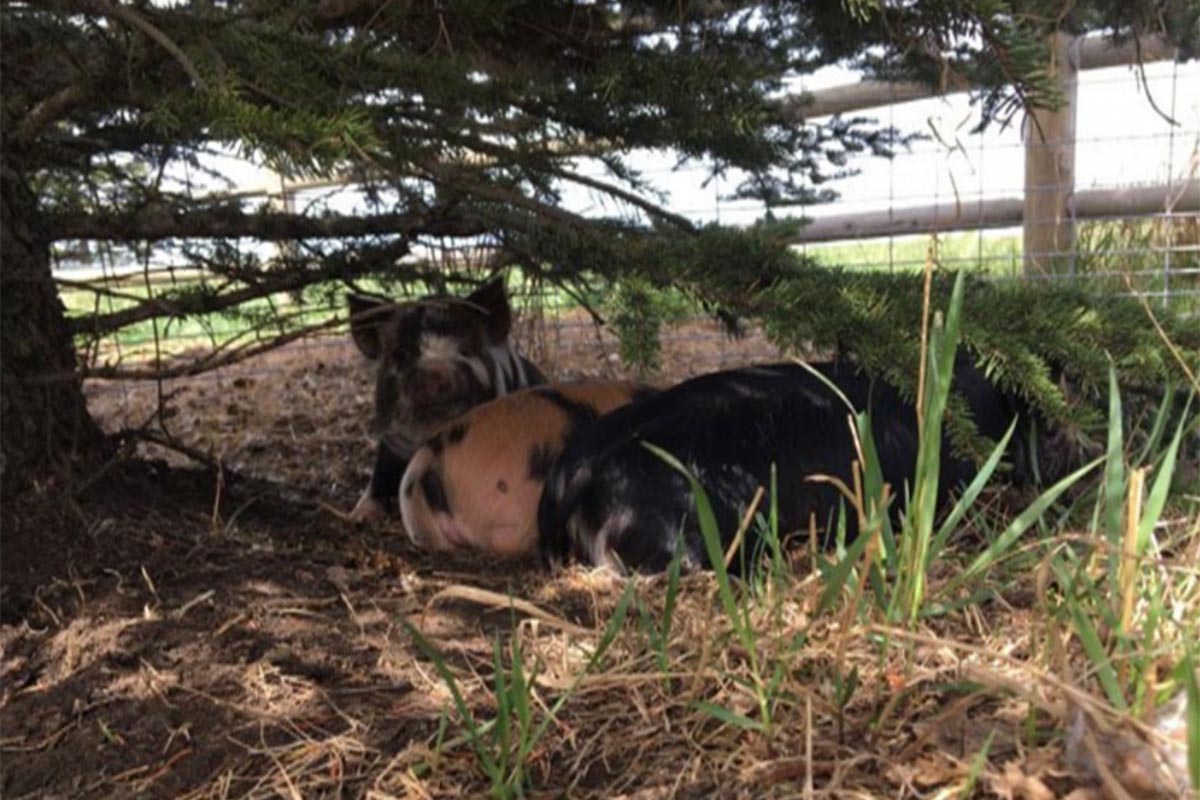Fencing for your pigs is a critical factor in raising pigs. Fencing provides a barrier to keep pigs within a specific area, in addition to keeping predators and unwanted visitors out. Pigs will root or dig under a fence that is not properly designed. The following are helpful tips in building a pig proof fence.
- Give strong consideration to your fencing options prior to bringing pigs home, as pigs can be escape artists. Escaped pigs can form wild populations that heighten other pig farms’ disease risk.
- Avoid using treated wood as it contains chemicals that, if ingested by the pigs, can contaminate their meat.
- Ensure perimeter fencing is properly designed, constructed, and maintained. Doing this will make your experience in raising pigs more enjoyable.
- Monitor and maintain fences, specifically looking for weak spots when using page wire, wood, or mesh fences.
- Ensure proper grounding of electric fences to avoid electrical shorts.
- If using an electric fence for your pens, it is recommended to also have an outer perimeter fence to protect your pigs from predators and other wildlife.
- Double-layered fencing, such as electric fenced pens within a larger perimeter fence, can also help prevent nose-to-nose contact with wildlife that can put your pigs at risk of contracting a disease.
